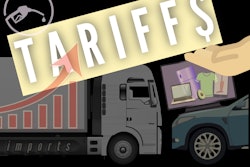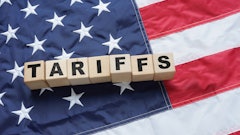
Cross-border e-commerce has hit a regulatory wall that's driving up costs and catching retailers unprepared, according to ePost Global’s 2025 Shipping Optimization Analysis Report. The study of 15.6 million international shipments worth $421 million reveals that nearly three-quarters (73%) of product categories now fall into tariff-sensitive classifications, with customs authorities around the world significantly ramping up enforcement.
"Retailers are sailing into a perfect storm of regulatory changes," says Kelly Martinez, founder and co-president of ePost Global. "The cross-border boom that fueled e-commerce growth is now confronting a wall of protectionist policies, with customs authorities converting what used to be routine shipments into complex compliance challenges."
Key takeaways:
· 42% of shipment value is now tied to high-complexity customs categories that face intense scrutiny, including electronics, luxury goods, and food items.
- Apparel and textiles (39.2% of shipment value) are subject to complex origin verification and Free Trade Agreement compliance.
- Electronics and technology (10%) are complicated by region-specific restrictions and battery safety regulations.
- 97% of all shipments still qualify under the EU's €150 de minimis threshold, creating a critical strategic opportunity.
- Over 52% of product categories have average values under $20, suggesting untapped potential for consolidation strategies.
- Value-based shipping approaches can help retailers sidestep the most punishing tariff traps.

![Pros To Know 2026 [color]](https://img.sdcexec.com/mindful/acbm/workspaces/default/uploads/2025/08/prostoknow-2026-color.mduFvhpgMk.png?auto=format%2Ccompress&bg=fff&fill-color=fff&fit=fill&h=100&q=70&w=100)







![Pros To Know 2026 [color]](https://img.sdcexec.com/mindful/acbm/workspaces/default/uploads/2025/08/prostoknow-2026-color.mduFvhpgMk.png?ar=16%3A9&auto=format%2Ccompress&bg=fff&fill-color=fff&fit=fill&h=135&q=70&w=240)










